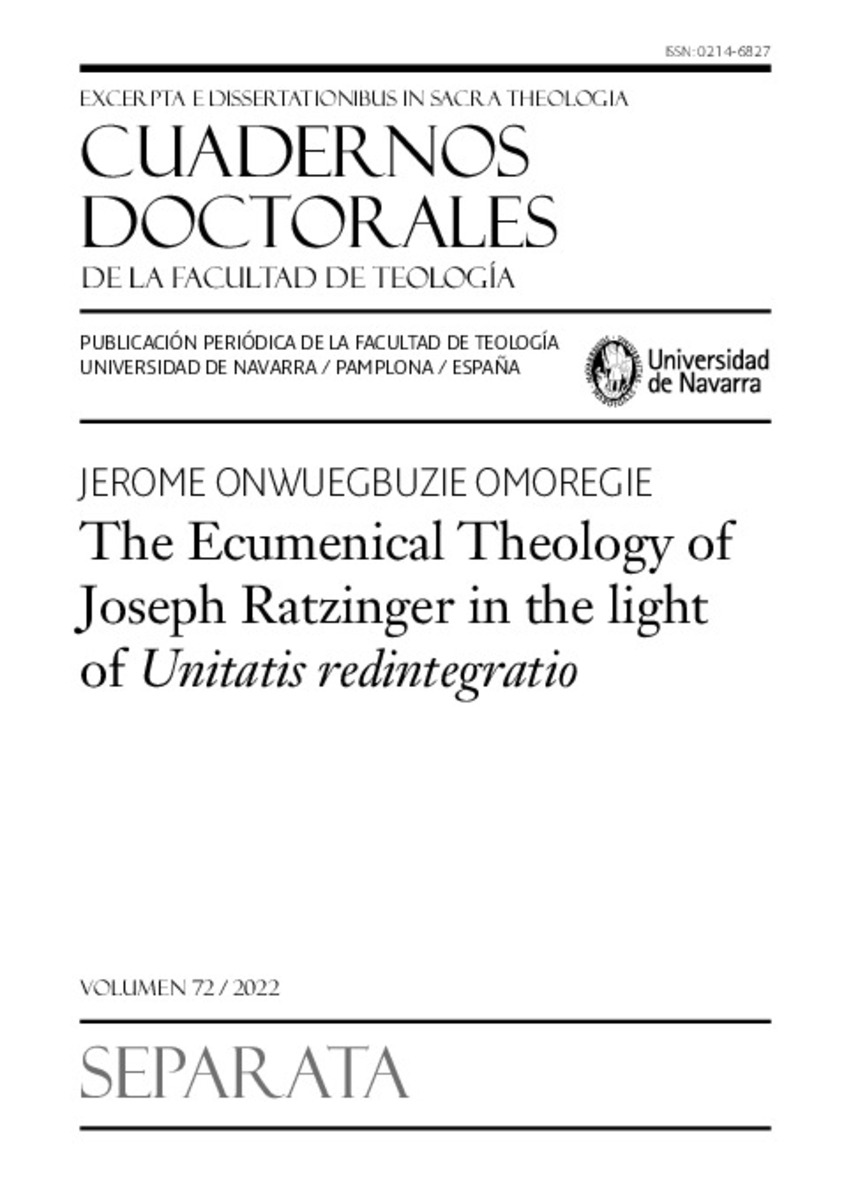The Ecumenical Theology of Joseph Ratzinger in the light of Unitatis redintegratio
Fecha de publicación :
2022
Editorial :
Servicio de Publicaciones de la Universidad de Navarra
Cita:
Onwuegbuzie-Omoregie, J. (Jerome). "The Ecumenical Theology of Joseph Ratzinger in the light of Unitatis redintegratio". Cuadernos Doctorales de la Facultad de Teología. Excerpta e Dissertiationibus in Sacra Theologia. 72, 2022, 201 - 286
Aparece en las colecciones:
Estadísticas e impacto
0 citas en

0 citas en

Los ítems de Dadun están protegidos por copyright, con todos los derechos reservados, a menos que se indique lo contrario.








